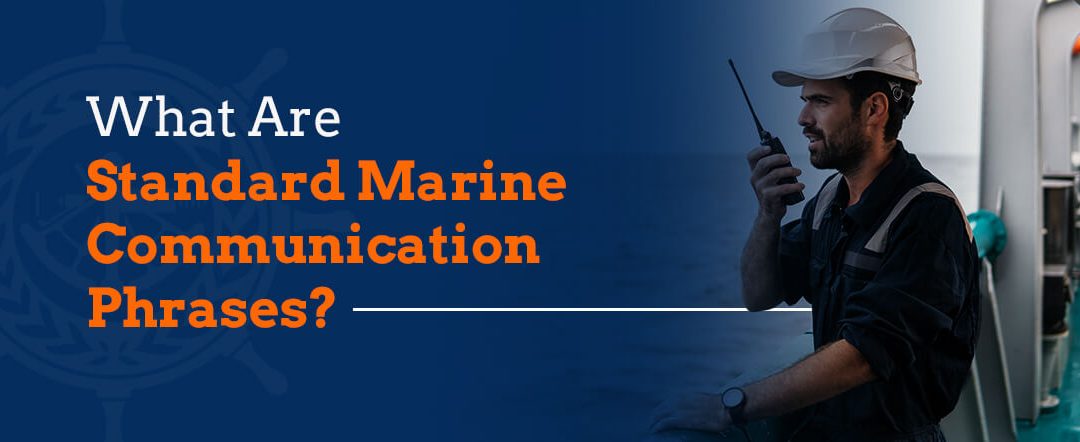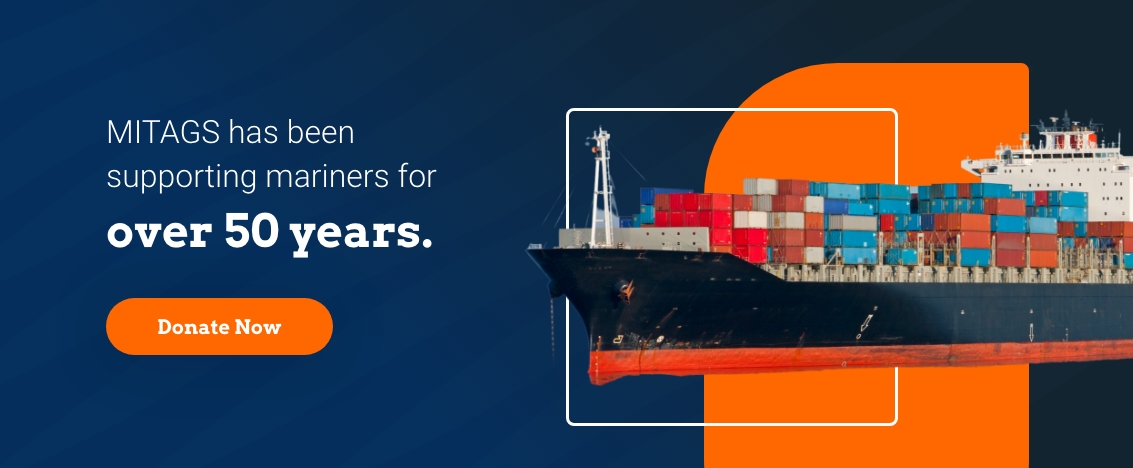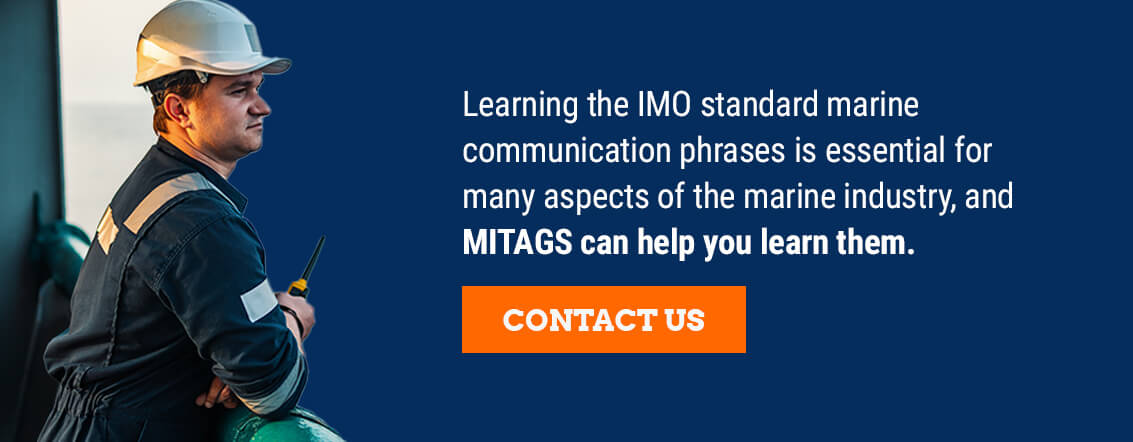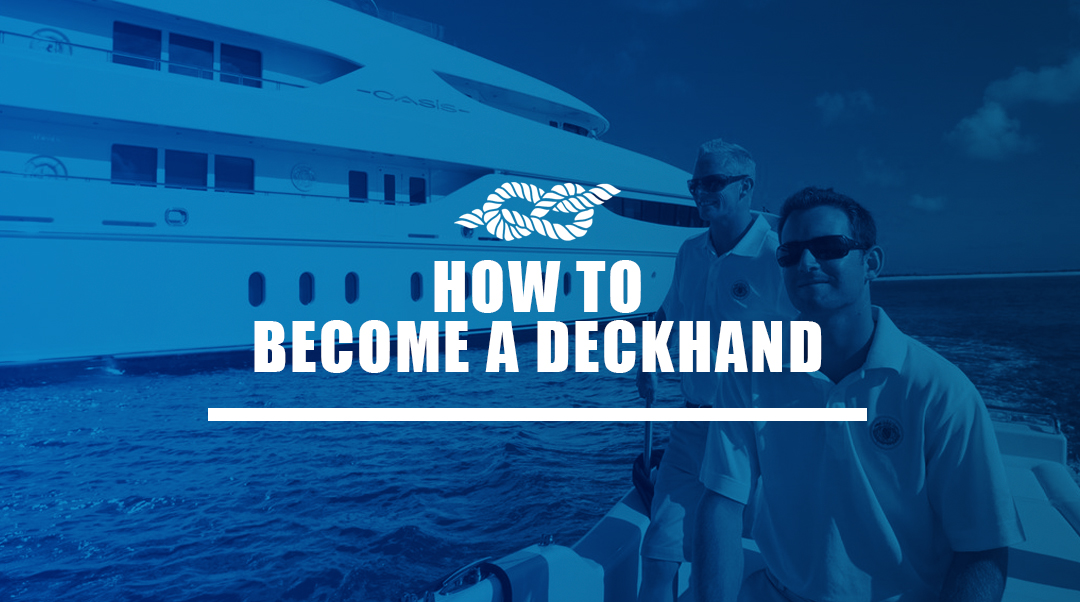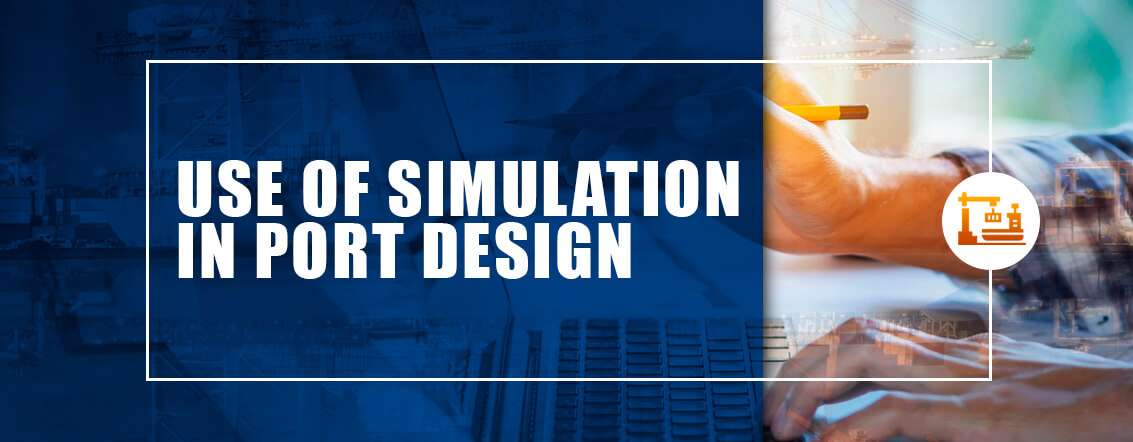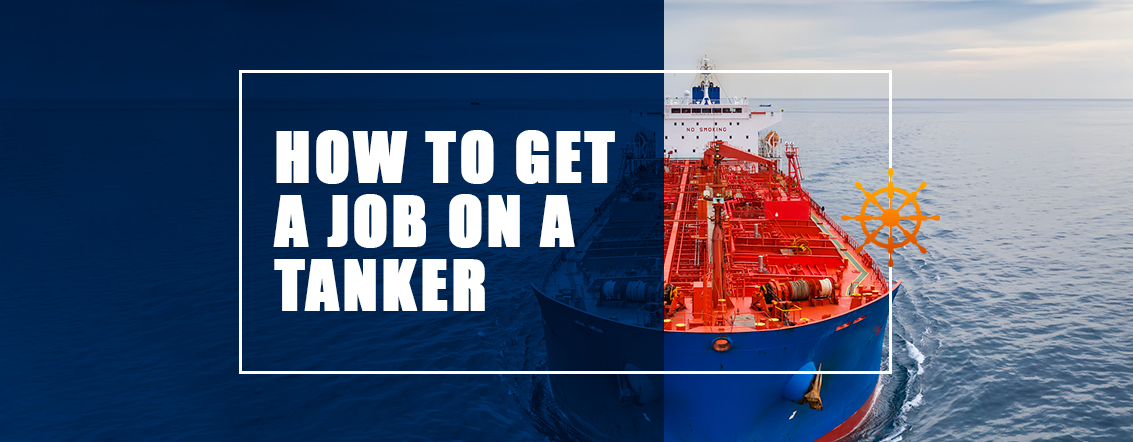Communication is critical while you’re out at sea. You need to properly communicate with your crewmates and captain about the ship’s status, weather conditions and other essential elements. It’s important to convey these messages with as much clarity as possible to avoid injuries or incidents.
The International Maritime Organization (IMO) developed a series of standard marine communication phrases to regulate sea communication. These English phrases standardize interactions both onshore and offshore. In turn, communication is more manageable and the ship stays safer.
Here is an overview of IMO standard marine communication phrases.
What Are IMO Standard Marine Communication Phrases?
In 2001, the International Maritime Organization adopted a new series of standard marine communication phrases to replace the previous set of vocabulary. This series serves as a comprehensive safety language for modern seafarers.
These phrases are intended to standardize communication on ships. All of the phrases are in the English language, the accepted maritime language. The brief sentences and words cover a wide range of sea-based instances, from hazardous incidents to quick check-ins. They provide a standardized set of communication that all ships can use.
You can use standard marine phrases for:
- Ship-to-ship communications
- Ship to-shore communications
- Communications within the ship, such as with a fellow crew member
This standardization outlines how to speak with other maritime professionals about many instances. Because these are standardized internationally, it reduces the possibility of miscommunication. In turn, professionals can speak faster and more directly about their circumstances.
Here are some elements of IMO standard phrases:
- Avoidance of functional terms like “the”, “a”, “is”, “are”
- No contractions or synonyms
- Limited use of conditional words, like “might” or “could”
- Full-worded and rephrased answers to yes or no questions
The communication series also includes a series of terms and definitions related to sea vessels and practices. Most ship workers should have sufficient knowledge of these terms before employment onboard.
Why Is It Important to Use IMO Standard Marine Communication Phrases?
The primary aim of IMO standardized marine phrases is to reduce misunderstandings while at sea. Mariners on ships often have to make crucial decisions quickly that could affect the entire ship or crew. This makes proper communication vital — in the few moments when someone tries to interpret your meaning, the entire situation could shift.
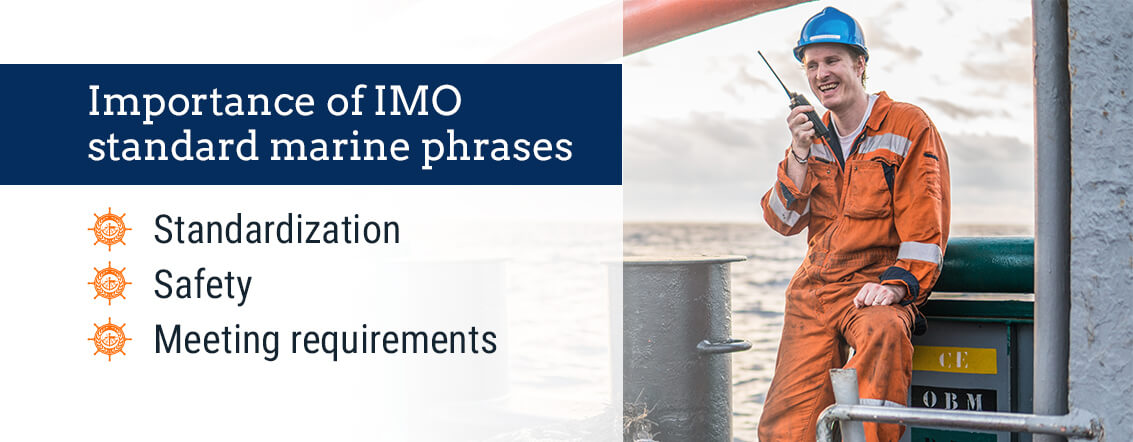
Below are more reasons for the importance of IMO standard marine phrases:
- Standardization: With a standardized set of communication across all ships, there is much less room for miscommunication. Once everyone is trained in the phrases, they can use them to relay vital information. Ships might also encounter other ships with speakers of different languages than their own. The standardized phrases allows important communication even through language barriers. Misunderstandings can cause accidents, so it’s important to use phrases with a consistent and understandable meaning.
- Safety: Using standardized language can also make your ship safer as a whole. In the case of an emergency, seafarers can use the phrases to inform others of the situation succinctly. Whether it’s a crewmate speaking to a captain or a captain communicating with a nearby ship, these phrases can describe perilous conditions quickly.
- Meeting requirements: Supervisors sometimes require knowledge of the SCMP for high-ranking positions on ships. For example, the International Convention on Standards of Training, Certification and Watchkeeping (STCW) for Seafarers requires that officers understand the SCMP before they can be certified. Without a sufficient understanding of these standardized phrases, you might not be able to progress in your career or take on positions with higher status.
Overall, the SCMP helps marine vessels communicate quickly and directly to other sea professionals.
Reinforcing IMO SMCP Habits With Training
The full extent of the standard marine phrases can seem overwhelming at first. For new candidates looking to join the maritime industry, it might seem challenging to commit all of the rules, terms and phrases to memory.
But with the right training, preparation and guidance, you’re sure to become fluent in IMO standard marine communication phrases. The key to efficiency in SMCP is building consistent habits. Once you use the correct phrases often enough, it will become second nature.
One option for learning these phrases is by enrolling in a graduate or certificate program. These are great options if you want to change career paths or move further into the industry.
The Maritime Institute of Technology and Graduate Studies (MITAGS) offers a wide range of marine preparatory programs and training. Many of our courses provide extensive preparation in standard marine phrases, such as:
- Advanced Ship Handling I and II: This course is designed for candidates with a current license that want to upgrade in the maritime industry. From emergency steering to verbal language, like standard marine phrases, the course prepares you to advance in your career as a maritime professional. It also gives you more exposure to SMCP and practice with using the phrases in these situations.
- Emergency Ship Handling course: This simulation-based course allows students to experience life as a mariner firsthand. Students get exposure to realistic, onboard scenarios and react in the moment to test their emergency procedural skills. The class is also an excellent opportunity to strengthen SCMP skills as you use them throughout the simulated events.
- Bridge Resource Management course: Students can also develop SCMP habits during Bridge Resource Management courses. These courses focus on navigational safety through simulation scenarios. Students can use the IMO standard marine communication phrases as they practice teamwork and effective communication.
By taking courses such as these, you can implement the SCMP into your daily vocabulary. With enough practice, many of the phrases will eventually become habitual. Then, you can use your knowledge as you look to further your career in the marine industry.
Contact MITAGS Today
Learning the IMO standard marine communication phrases is essential for many aspects of the marine industry, and MITAGS can help you learn them.
The Maritime Institute of Technology and Graduate Studies is a non-profit vocational center. We focus on providing high-quality training and preparation for those wanting to enter the maritime field. Whether you’re looking for a career change, have years in the industry or are a recent graduate, we offer a variety of resources for you.
To get started with MITAGS, browse our available courses or contact us today.

